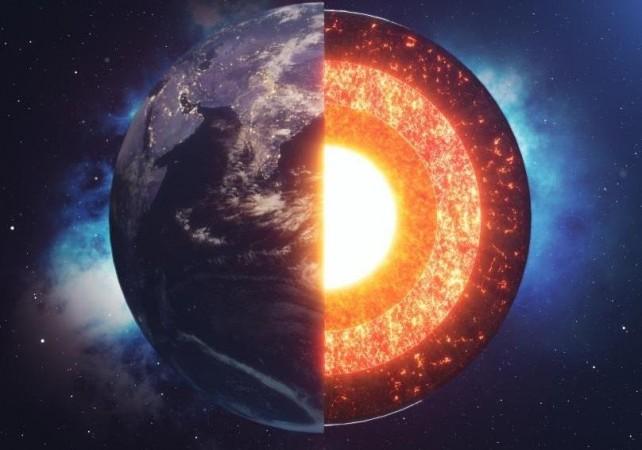A team of researchers has found evidence of a new layer to the planet sitting within the inner core.
According to seismologists from The Australian National University (ANU), data gathered from seismic waves caused by earthquakes has shed new light on the deepest parts of the Earth's inner core.
The researchers believe they have documented evidence of a distinct layer inside Earth known as the "innermost inner core", a solid "metallic ball" that sits within the centre of the inner core, by measuring the different speeds at which these waves penetrate and pass through the Earth's inner core.
Earlier, it was thought the Earth's structure comprised four distinct layers -- the crust, the mantle, the outer core and the inner core, but the current findings confirm there is a fifth layer.

"The existence of an internal metallic ball within the inner core, the innermost inner core, was hypothesised about 20 years ago. We now provide another line of evidence to prove the hypothesis," said Thanh-Son Phaim, from the ANU Research School of Earth Sciences.
The scientists looked at seismic waves that travel directly through the Earth's core and 'spit out' on the opposite side of the globe from where the earthquake occurred, also known as the antipode.
The waves then return to the epicentre of the quake.

The researchers from the ANU compare the process to a ping pong ball bouncing back and forth.
"By developing a technique to boost the signals recorded by densely populated seismograph networks, we observed, for the first time, seismic waves that bounce back -- and forth up to five times along the Earth's diameter. Previous studies have documented only a single antipodal bounce," Phaim said.
"The findings are exciting because they provide a new way to probe the Earth's inner core and its centre-most region," he added.
(With inputs from IANS)














